The Power of Negative Space: Why Growth Happens in the Quiet Moments
Lachlan Wallace • October 12, 2025
The Power of Negative Space: Why Growth Happens in the Quiet Moments
TL;DR:
Training and stress create the stimulus for growth, but rest, recovery, and reflection—the negative space—are where adaptation happens. The goal is not endless effort, but finding the rhythm between work and rest that builds strength, resilience, and joy.
Progress often feels like something that happens through action: the grind, the sets, the sweat. But the real growth occurs between those moments. In art, negative space gives depth and meaning to the image. In training and life, it’s recovery and regeneration. It isn’t the lifting or working that makes us stronger, but what follows after.
The science of stress is captured in Hans Selye’s General Adaptation Syndrome. First comes the Alarm Stage,
when the body recognises stress and reacts with a surge of cortisol, adrenaline, and inflammation. Next is the Resistance Stage, when adaptation happens. The body rebuilds stronger to handle future stress. Without recovery, we hit the Exhaustion Stage, where fatigue, injury, and burnout take hold.
This is why negative space matters. The stimulus, the training and the effort, it is only half the process.
Without time to recover and integrate, there is no adaptation. Sleep, sunlight, good food, stillness, and connection are not luxuries; they are essential.
The body grows stronger after training, not during it. Your nervous system builds resilience when it feels safe, not when it’s overloaded. Recovery is not a break from work; it is where the work becomes valuable.
At Virtus, we live by a belief system of growth. We are here to evolve, not to smash ourselves endlessly. Growth moves in cycles of stress, rest, and adaptation. We learn through challenge, but we change through restoration. The dance between effort and ease is where joy lives. The goal is rhythm, not constant acceleration. For me, this is the good stuff.
Think of your life as the creation of art. The effort and training are your brushstrokes, but the negative space, the quiet, the stillness, the pause, gives it meaning. Without contrast, everything blurs. Without rest, progress fades. The more you value the quiet, the more your effort counts.
At Virtus, we believe in playing the long game. We train hard, recover harder, and aim to be better every day, in and out of the gym. True strength is not how much you can do, but how well you can recover and return ready for more. Repeatability is about the best capacity you can have. Being able to show up, put in the work, then rest and return again the next day. Growth lives in the balance between push and pause, between sound and silence, between action and reflection. Between go and stop.
If you’re ready to explore this rhythm for yourself, join us at Virtus.
Our training is about progression, presence, and the simple joy of becoming better every day. Learning when to push, when to pause, and how to make the space between the reps work for you.
Our training is about progression, presence, and the simple joy of becoming better every day. Learning when to push, when to pause, and how to make the space between the reps work for you.
Real growth happens in those quiet moments of recovery and regeneration.
More isn't better. Better is better.
Better every day.
I'm here for it.
Lachie
More isn't better. Better is better.
Better every day.
I'm here for it.
Lachie
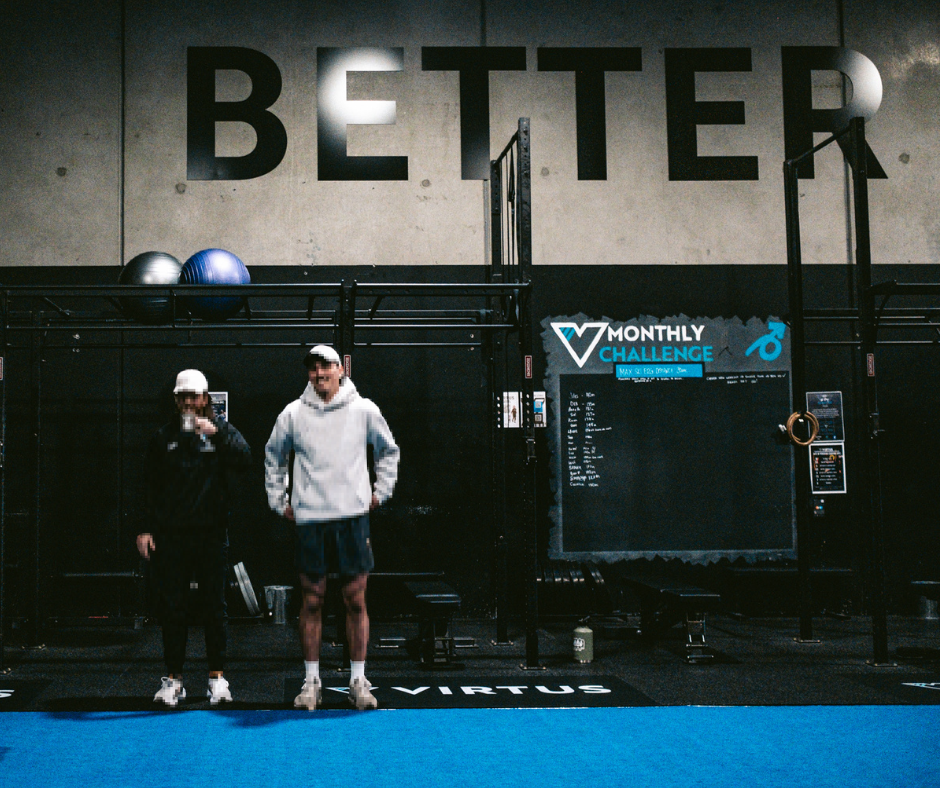
Recent Blog Posts

Most of you will know Jacqui Coughlan. She's our head coach here at Virtus and one of the more capable humans you'll ever meet. She also has outrageously high standards in pretty much every aspect of her life, a standard that she does her best to hold herself to, but by design is almost unreachable. This is one of her superpowers, but it can also be an impediment for progress, growth and self belief systems when she feels she may be continually falling short of unrealistic expectations. After a chat last week, I challenged Jac to a simple task. Write 1 page per day in a physical journal, to help build awareness and context for where you're at and what you need right now. Regardless of whether she filled a page every day or not, how she thought/felt/behaved would shine a light on exactly where the value might lie. Anyone who knows me would know that I have long been a strong proponent of journaling. I've written many blogs on the topic, but here's a simple one for some context . Being such a high functioning individual, Jac (and many of us) tend to fall into the all or nothing approach...'well if I don't do it perfectly there's no point doing it' which is an incredibly human perspective to take. This perspective also gives us an out, because you can choose to do the nothing. But here's the secret, quite often the cave you fear to enter holds the treasure you seek. When you face the resistance that bubbles to the surface, give yourself permission to fail and do the thing, magic starts to happen. Do it often enough and the person staring back to you on day 30 or 50 or 100 is a more capable, more aware, more authentic version of you. Anyway, back to the point. We are a week on from that conversation, Jac hasn't ticked off 7 days of journaling, however, she took a massive step forward on Monday and she finished a page. Her reflections were simple "I journaled. It was a slay" . I won't put words in her mouth, but in summary, game changer. So here's my challenge to you, and a tool to help you execute it. Take 5 minutes out of your day to write some shit down. It can be in a physical journal or online. The tool that I'd suggest you use if you do it online is The Most Dangerous Writing Prompt Generator - It’s a high-pressure writing tool that deletes your work if you stop typing for too long usually around 5 seconds. It’s designed to help you overcome perfectionism, self-doubt, and writer’s block by forcing you to keep writing without hesitation. I used it this morning, it actually gave me the idea to write this blog. Give it a crack, here's what I wrote in 5 minutes this morning... Be amazing. Lachie This is a pretty cool concept, it's super easy to get stuck in your head and not actually be able to exhale and write something down, the inner voice screaming about the quality of the content, when in reality the juice comes from the squeeze of the doing. So here's five minutes of my thoughts, imperfect, yet valuable in it's own way. As Ferris once said 'Life moves pretty fast, best you stop and look around once in a while'... Did I butcher that quote? Absolutely, but every first draft is shit, so here we are. Let's take that quote a little further, 'your thoughts move pretty fast, best you step back and examine them once in a while' When we have the awareness / capacity to zoom out and actually observe the flow of cognisnace (is tnat how you spell it?) rushing through our mind, we gain a superpower. That observation gives us space, to continue to let our stream of consciousness drag us down the river, OR, to slow down, assess, be proactive with our response rather than reactive. Which in itself has the capacity to change, enhance, enrich our existence, or at least our perspective on our existence. From there, we can make better choices, reflect on our emotions, cultivate a level of awareness simply not available to us if we spend our whole lives swimming in the river. Fighting with or going with the stream of consciousness. What an empowering realisation, you are not your thoughts, you are an observer of them, and when you shift your perspective you now have the ability to choose your response, to do the thing, or to let the thought simply float away before it does any harm. This was fun. Onwards.
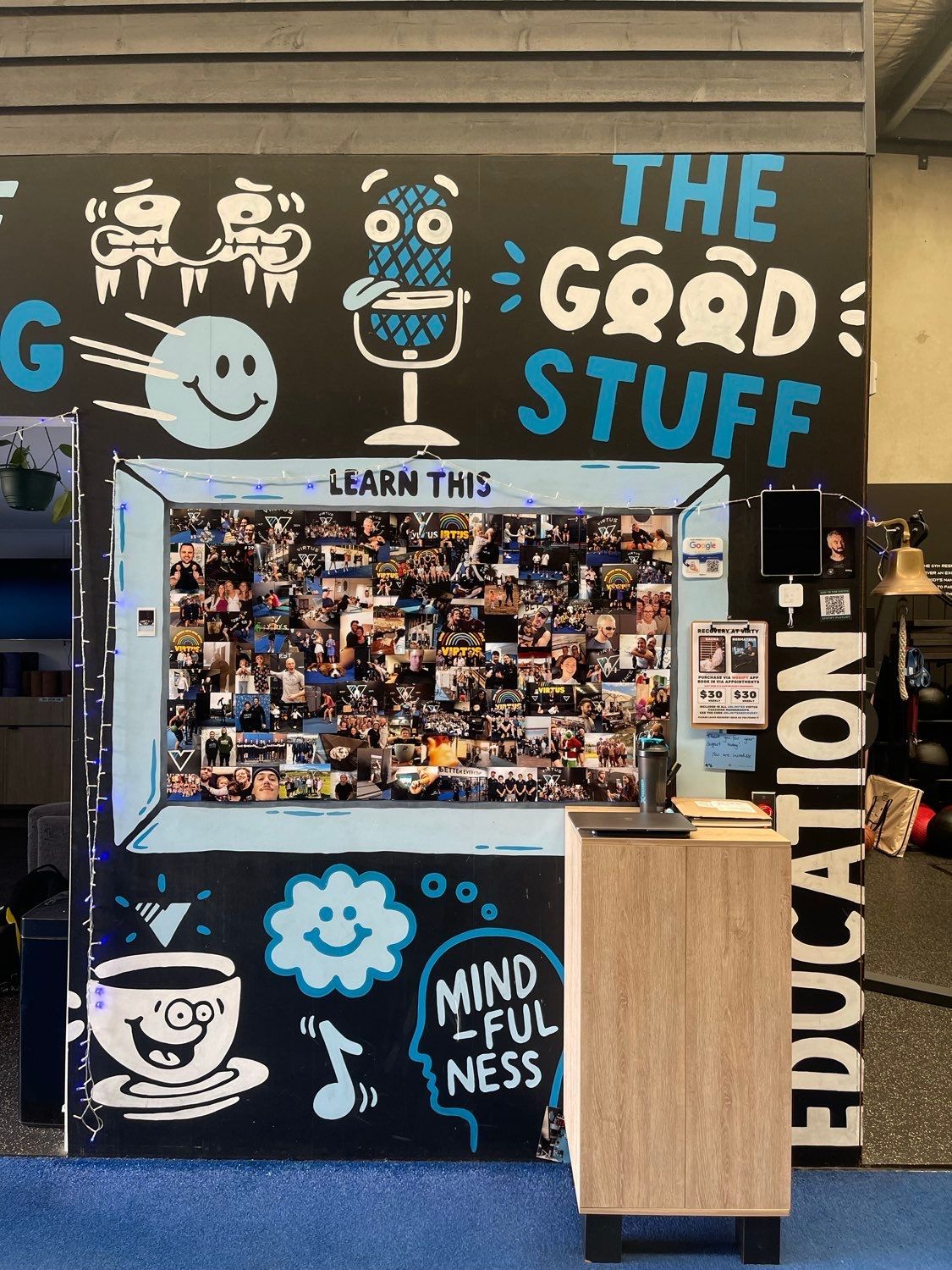
Here’s the truth most gyms and coaches miss. You can’t build a high performing athlete o top of a stressed, overwhelmed, burnt out human. You can try. You might even get a few good weeks out of them. But it won’t last. It never does and longevity is the game. Here’s something worth remembering. Everyone is an athlete in their own way. Every single person who walks through our doors is juggling physical, mental, emotional and social loads. Training is just one part of a much bigger picture. At Virtus, we start with that bigger picture. We start with the person. We meet you where your at. We talk about your world. Your responsibilities. Your sleep. Your headspace. Your joys and their messiness. Because when you understand the human, the training becomes clearer. When you support the human, the athlete feels safe enough to come out and play. Most people walk around thinking their training problem is a training problem. It rarely is. It’s usually a human problem. Too much noise, not enough support. Too many expectations, not enough grounding. Too many friction, not enough awareness. So we flip it. We meet the person first. We listen. We connect. We build trust. Then we train with purpose instead of pressure. This thing we get to do is a privilege. This shift is when people start doing things they never believed they could. That’s when longevity gets built. That’s when training becomes a part of a life well lived. It's outrageously simple, we begin to take care of themselves when we feel seen and understand intimately what we need most. For Virty Members, this time of the year can be chaotic, this is why it is the perfect time to align on what matters most. Book a goal review. Or if you want a deeper dive, book a private session or a Nutrition and Lifestyle chat with one of our coaches. Give yourself the space to focus on the human first, so we can help the athlete (whatever your sport looks like) thrive. If you're not currently frequenting Virtus, and you want to train somewhere that actually cares about the person in front of them, book your intro or jump on a call with me (o401850474) We’ll start with you, not just your goals. 5 questions we use to help this process.... - What do you need that you don't have right now? - What does winning look like? - What do we need to be good or better at? - What do we need to do? - How will we know.... Big love. Lachie With self awareness comes great potential.
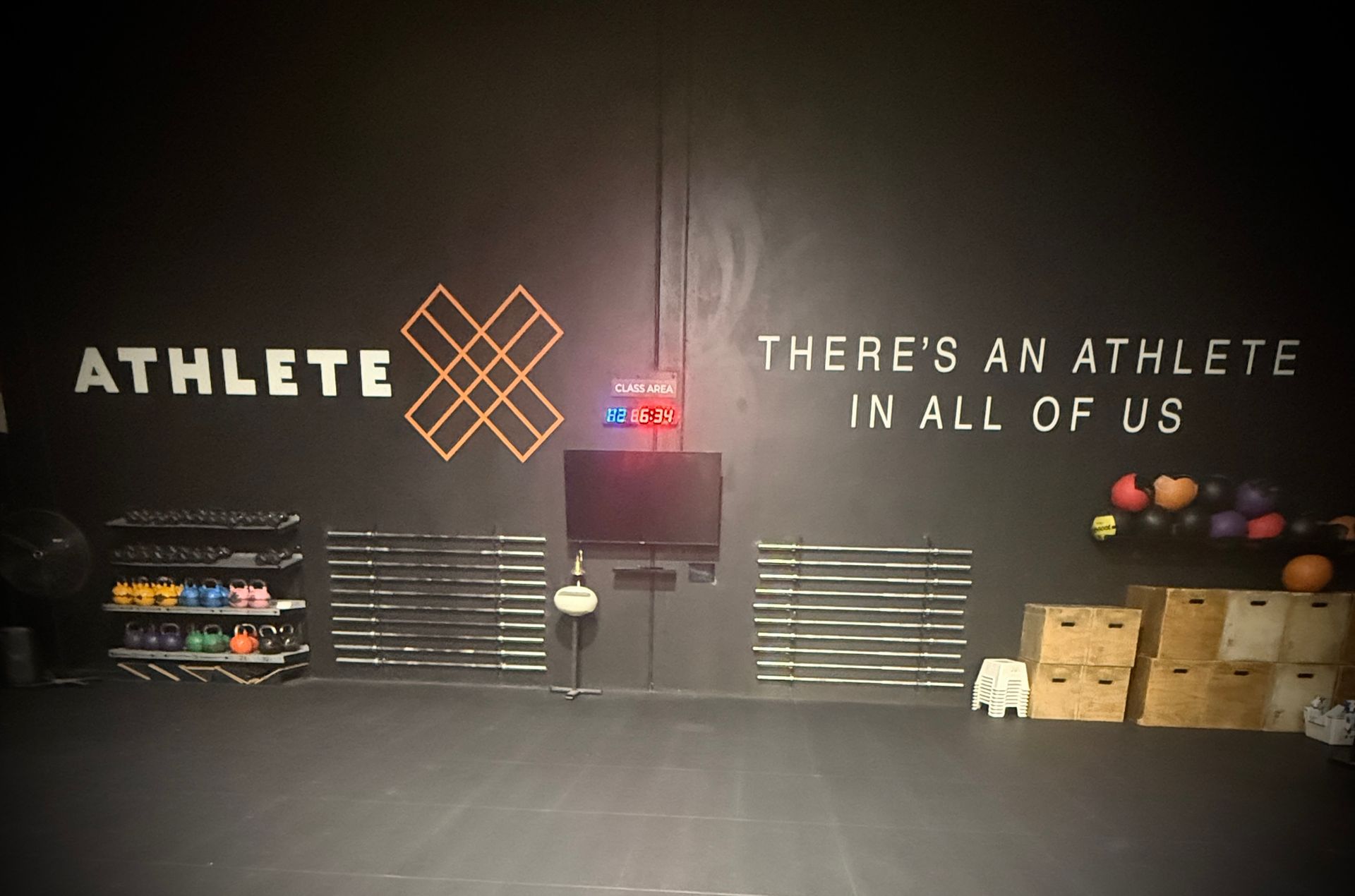
Beautiful people, Happy Wednesday. A quick one from me. I’m in Perth this week, spending time with my business coach (yes, my belief in coaching extends well beyond the gym) and catching up with a great mate who runs a world class facility called Athlete X. Athlete X is about as Virtus as a place can be without the blue turf and a V plastered on every wall. Mel and the team live and breathe growth, community and the idea of building lifelong athletes. I’ve admired them from afar for a long time, and it’s a privilege to spend time inside their community (even though I’m missing ours). One of their mantras resonates heavily ‘Don’t have to, get to.’ A simple shift in perspective, but it changes everything. How you show up for a session. How you change your kid’s nappy. How you pay your bills. How you move through your life. Perspective matters. We get to choose how we respond, whether the moment is good, challenging, or somewhere in between. Life gets pretty wonderful when we notice everything we already have, instead of focusing on what we don’t. As the immortal David Lynch says: focus on the donut, not the hole. Today, take a moment to think about something you might be dreading. Shift the mindset from ‘have to’ to ‘get to’ and see how your nervous system responds. Onwards. Wallace PS. If you’re not part of Virtus yet, or have been thinking about coming back, now’s a great time to jump in. Email me lachie@virtusperformance.com before the week’s out and I’ll line you up with something special to help you get the wheels turning.
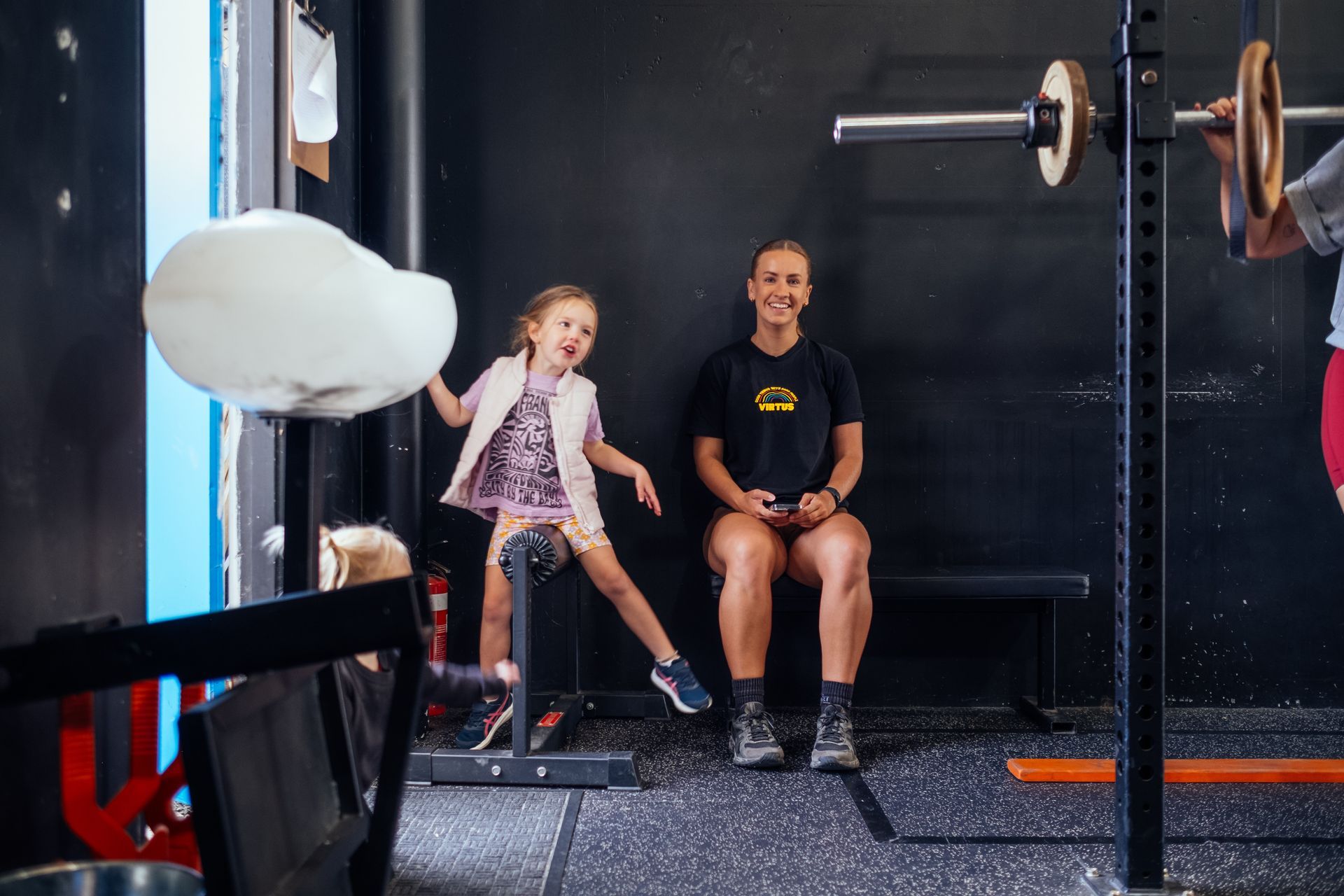
At Virtus, we believe that looking after your mind is just as important as looking after your body. Whether you’re feeling stuck, overwhelmed, anxious, or simply want someone to talk to, getting support shouldn’t feel complicated. Watch this video of Nina walking you through the process! That’s where a Mental Health Care Plan (MHCP) comes in. What is a Mental Health Care Plan? A Mental Health Care Plan is something you and your GP create together to help identify any mental health concerns and outline a path forward. This often includes access to a psychologist, where you can receive Medicare rebates for up to 10 individual sessions per year, making professional support more affordable. Depending on your psychologist’s fees, there might be a small gap to pay, but the rebate significantly reduces the cost. How to Get a Mental Health Care Plan (Step by Step) 1. Book an appointment with your GP When you book, let the receptionist know you’d like to discuss your mental health. Some clinics will ask you to book a longer consultation so your GP has enough time to listen and complete the plan with you. 2. Work with your GP to create the plan During the appointment, your GP will talk with you about what’s been happening, how you’ve been feeling, and whether you’re eligible. If so, they’ll complete your Mental Health Care Plan, which gives you 6 initial sessions with a psychologist. 3. Choose your psychologist You can choose a psychologist that suits you, someone you feel comfortable talking to. Your GP can recommend options, or you can ask them to send your plan directly to the psychologist you’ve chosen. To receive the Medicare rebate, your plan must be dated on or before your first appointment. 4. Continue your care after your first 6 sessions Once you’ve completed your initial sessions, your psychologist will send a short progress report to your GP. You can then review your plan together and, if ongoing support is helpful, get a referral for up to 4 more sessions that year. Meet Nina: Here for Everyone Our psychologist Nina, brings warmth, understanding, and over a decade of experience helping people navigate life’s challenges. While Virtus is known for performance and training, Nina isn’t just for athletes . She helps people from all walks of life, including parents, students, professionals, couples, and anyone looking to improve their mental wellbeing. Her approach is compassionate and evidence-based, using tools like mindfulness, CBT, and EMDR to help you find clarity, calm, and confidence in yourself again. Take the First Step If you’ve been thinking about getting support but haven’t known where to start, booking that first GP appointment might be the most important step you take this year. Once you have your Mental Health Care Plan, you can book your first session with Nina here: 👉 Book with Nina Because you don’t have to do it alone, and you don’t have to wait until things get bad to start feeling better. Lachie
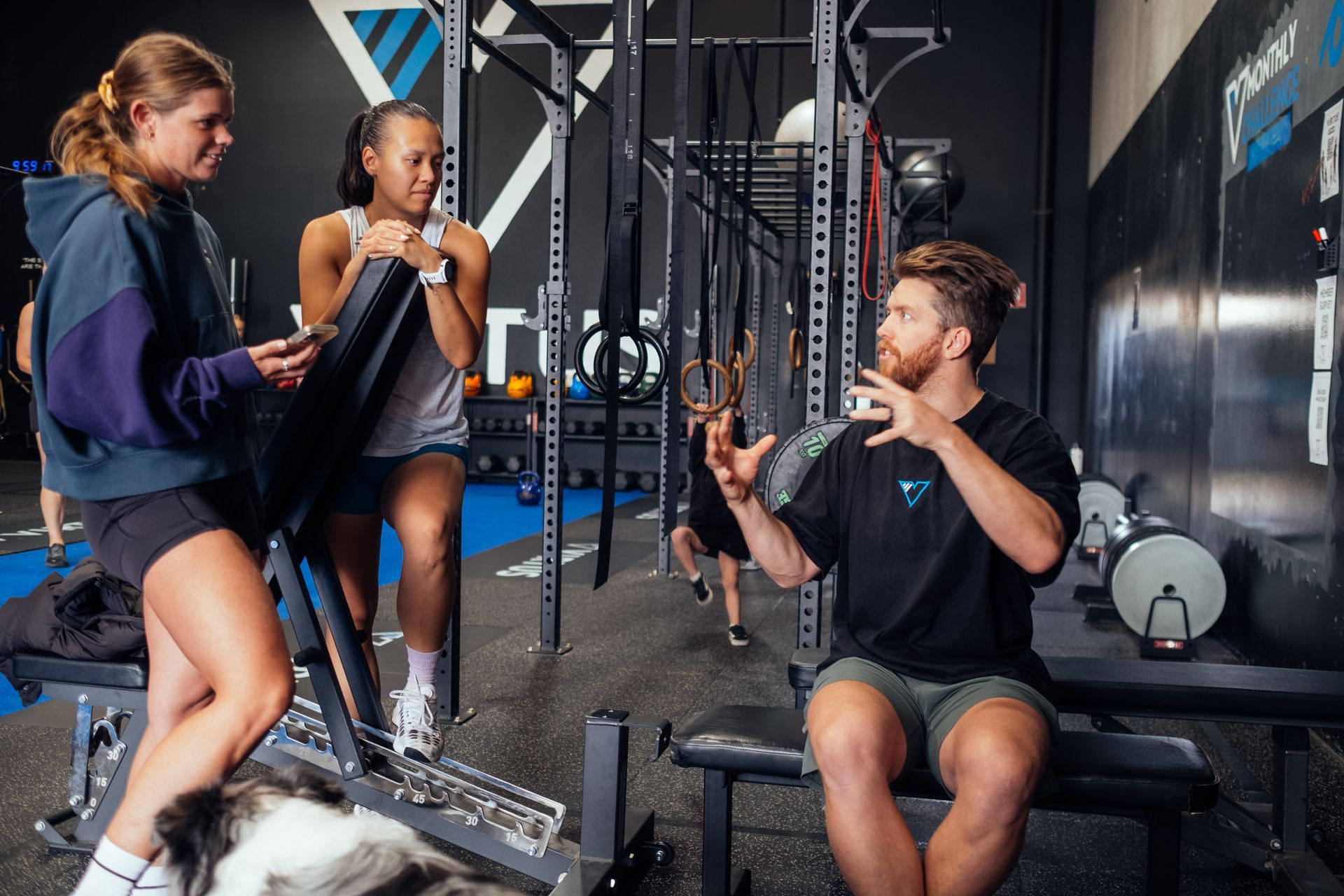
I was seeing Greg for treatment the other day, and like most sessions with him, I left with some brain food. This time though, the brain food was quite literal. We got talking about something called BDNF, Brain-Derived Neurotrophic Factor. Never heard of her? Me neither. But here we are. The Phys has this way of casually dropping knowledge bombs that make you rethink everything you thought you knew about performance and recovery. He’s part physio, part philosopher, part nerd who clearly spends too much time reading PubMed. He was explaining how BDNF works, and I found myself fascinated. The way he described it was simple: BDNF is like fertiliser for your brain. It helps your neurons grow, repair, and connect better, the same way a good strength program helps your muscles adapt. It’s the reason why exercise sharpens your mind, why learning new skills sticks faster, and why sleep and sunlight feel like magic for your body and soul. So yes, Greg is a nerd. A very smart, loveable nerd. What does BDNF actually do? Here’s the straightforward version that my little brain can understand... BDNF is a protein that lives in your brain and central nervous system. Its job is to help your brain grow and adapt. Every time you train, learn, move, rest, or eat well, you give your brain a dose of this stuff. It improves: Memory and learning Mood and motivation Recovery and resilience Long-term brain health It’s the reason people who train regularly tend to think clearer, feel better, and stay sharper as they age. It’s not just the exercise, it’s what the exercise does to the brain. Here’s the good news: you don’t need a lab coat or a neuroscience degree to boost your BDNF. You just need to live like a human was meant to live. Do these 6 things often... Move – Strength, conditioning, play, walk. The more you move, the more your brain adapts. Sleep – Seven to nine hours is your brain’s growth window. Don’t skip it. Eat real food – Omega-3s, colourful veggies, berries, and good fats all feed your brain. Get sunlight – 15–30 minutes outside each day does wonders for mood and BDNF. Learn new things – A new skill, language, sport, or even a random hobby keeps your neurons firing. Connect – Deep conversations, laughter, and gratitude all improve brain health (and make life better). At Virtus, we talk a lot about being Better Every Day. That’s not just a feel-good motto, it’s a biological reality. Every rep, every breath, every night of decent sleep literally changes your brain. BDNF is proof that the habits you build don’t just make you stronger, they make you smarter, calmer, and more adaptable. So next time Greg is elbow-deep in your hamstring talking about brain fertiliser, remember: the real lesson might not be about your muscles. It might be about growing your mind. And maybe thank the Phys for being a beautiful nerd who keeps us all feeling better, and fixed , body and brain. Keep being wonderful Lachie
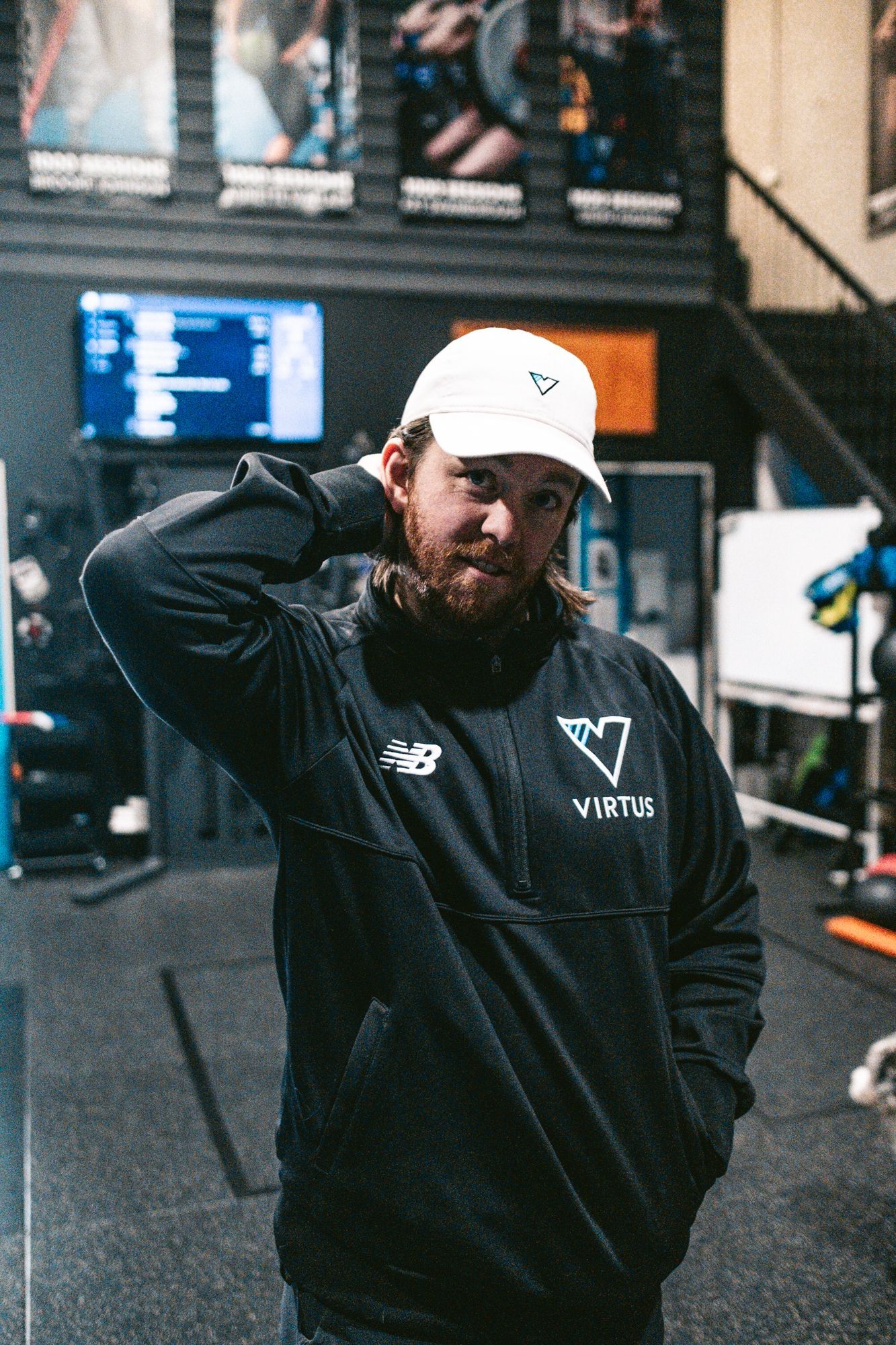
The quiet voice that talks you through a session, a meeting, or a moment of doubt. Sometimes it pushes. Sometimes it criticises. Either way, it shapes how you perform. How you progress. How you stagnate And science says it also shapes how your brain works. A 2021 study by Kim and colleagues (PMID: 34290300) found that self-talk, whether positive or negative, changes how brain networks communicate . Positive self-talk strengthens the connections between areas that drive motivation, focus, and self-control. Negative self-talk weakens them. In short, the words you say to yourself can rewire your brain. So stop being a di** to yourself. Positive self-talk isn’t about empty optimism. It’s about respect. It's about building a belief system. It’s a reminder that belief, focus, and self-awareness grow first from the way we speak to ourselves. Then from what we do. The study showed that people who used self-respect phrases didn’t just feel better, they performed better too. Criticism might still drive you for a while, but it’s like running on fumes. It creates tension instead of flow, stress instead of focus. Over time, that pattern wears you down and becomes an impediment to growth. Treat your inner voice like your best friend. Like your grandma. Like the 8 year old version of you. Be kind. Challenge it, don’t let it tear you apart. Next time you’re struggling in a session, or at work, or doubting yourself, step back (metaphorically) and listen to your own commentary. Is it helping you or holding you back? Serving you, or sabotaging? Your brain doesn’t know the difference between real and rehearsed, it believes what you repeat. So speak to yourself like someone you love and care for. Because your brain is listening & it's taking notes. Food for thought. #clever Lachie

